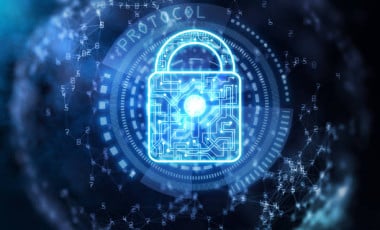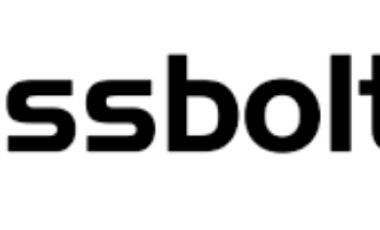How Important Is the Secure Login on Corporate and Public Sector Websites?
Security has become a significant concern in the current space where the Internet is readily available to everyone. The corporate and public sectors both are at a considerable risk of losing confidential data. According to CIRA cybersecurity survey¹, three in ten companies in Canada have experienced a hike in cybercrime during the pandemic.
To ensure the security of the websites and protect their client data, many websites use multiple security measures. One of the most important measures is adding a login page. It creates a considerable barrier and limits access to only people from the company or people with relevant login credentials.
Despite this, many security threats exist. Let’s first understand why securing websites is essential.
Importance of Security on Public Sector Websites
The Internet is one of the easiest ways to access information and services. Using this to their benefit, most public sector organisations have created a substantial online presence. Following this trend by the private sector, even the government has now started making its services available online.
The increasing online presence of the government is making its websites more vulnerable to data breaches. Without proper security measures, websites are more prone to hacktivists and cyberattacks. As a need to safeguard the citizens’ and governments’ data, the public sector needs to adopt tested cybersecurity systems.
These attacks are very costly for the government as they need to go through frequent software and hardware replacements. They also lead to missing data, financial thefts, lost revenue and most importantly, the loss of citizen trust.
Most public sector websites are linked to phones, emails or financial systems. If one of them is compromised, it’s easier to bring down the entire system making it imperative to have a secure hosting facility. The proper security measures allow companies to track traffic, attempted attacks and any suspicious activities. It helps reduce the impact or severity of the attack and locate or identify the source of these attacks.
Another type of attack experienced in the public sector is Distributed Denial-of-service (DDoS). In this attack, the hackers increase the amount of traffic on the website using multiple IP addresses and devices. It leads to data loss and an unavailable website. We can avoid this type of attack with proper planning and preparation of a counterattack.
We discussed how any public sector company or government would be affected if no security measures were in place. Now, let’s see why the private sector needs proper security mechanisms.
Importance of Security on Corporate Websites
We are becoming more and more dependent on technology. From ordering food to ordering electrical appliances, we prefer to do everything online. It has made it essential for corporate sectors to have an online presence. With the current work from home environment, most companies have moved to work online using clouds or other easy to access web portals. It makes their data easy to hack and access. In such cases, a targeted attack can stop the work, lead to missing data and even financial fraud.
Over the years, the security measures have improved, but this has not been able to stop the attacks. It is important to remember that the websites are chosen randomly. The hackers go through a search and attack whichever website has vulnerabilities. It is a considerable threat for small business owners as they may lose money and confidential data. Since March 2020, over 25% of small businesses have been targeted for cyberattacks².
When using a website, if a customer encounters a virus, they are less likely to visit again. It will eventually reduce the number of customers that access your product or services. It will also directly impact the company’s reputation, which in turn affects income and profits.
If any of the hacking attempts are successful, top search engines like Google will blacklist the site. It will reduce the traffic on your website by 95%. To get the website out of the blacklist after securing the website, the company owner needs to send out petitions to each search engine individually. It is a time-consuming process. To avoid this, one needs to have set security measures in place.
How Secure are Drupal Websites?
It makes it imperative for any company to have a secure website. The easiest way to secure a website without a costly vendor or host is to use Drupal. It is an open-source Content Management System (CMS) that offers a variety of freely available community codes. The software is free to use and customise, with built-in security features that help fight cyberattacks. It also provides flood prevention capabilities that help fight against DDos.
Drupal is one of the most secure CMS platforms that offer a security developers team that help develop security modules to identify and resolve bugs. The code is viewed and corrected by users from across the globe. It highlights the security vulnerabilities and can be resolved in time.
Drupal offers multiple security modules that can be used without extensive technical training or knowledge. These modules are less time-consuming and help create security barriers around the website that are difficult to get through. These modules include the Drupal login security module, Drupal disable login page, Two-factor authentication module and more.
Role of Drupal Disable Login Module
As mentioned earlier, one of the easiest ways to secure a website is to add a login page to the website. It creates a barrier that can only be accessed by someone who is a registered user. But, for public sector websites or websites that get a lot of general traffic, this is not very useful as it will only block the traffic. It is perfect for corporate or public sector organisations that want access only to their employees or for sites that want to showcase a project to a limited audience.
In many cases, despite having a login page, the websites are still prone to hacking and may not be very secure. To prevent brute-force login attacks, users can add another layer of protection called disable login page module. The registered users will need to enter a secret key and value to access the login page. The admin will then configure the key and allow access. It prevents bots and anonymous users from accessing the websites. It also allows modifying the secret key to any custom code by implementing the alter hook in the module.
Conclusion
Websites have been hacked since the emergence of the Internet. It will only keep increasing as more and more companies are moving online. To ensure that company and customer data is secured, the organisation must provide security measures.
They need to have secure login pages to limit access to people outside the organisation or users that aren’t registered. With a secure login page, the hackers will not be able to look for vulnerabilities and will not be able to attack.
An organisation should not just limit their security to one module or measure; they need to use multiple security measures. They also need to remember to keep updating their security plans, and their website as an updated website is less likely to be attacked. It makes the website double secure.
References:
- CIRA Cybersecurity Survey 2020, (online) Link accessed on Oct 2021.
- Leo Almazora, The COVID-19 pandemic sparked a cyber-crime boom, Wealth Professional (online), Link accessed on Oct 2021.



